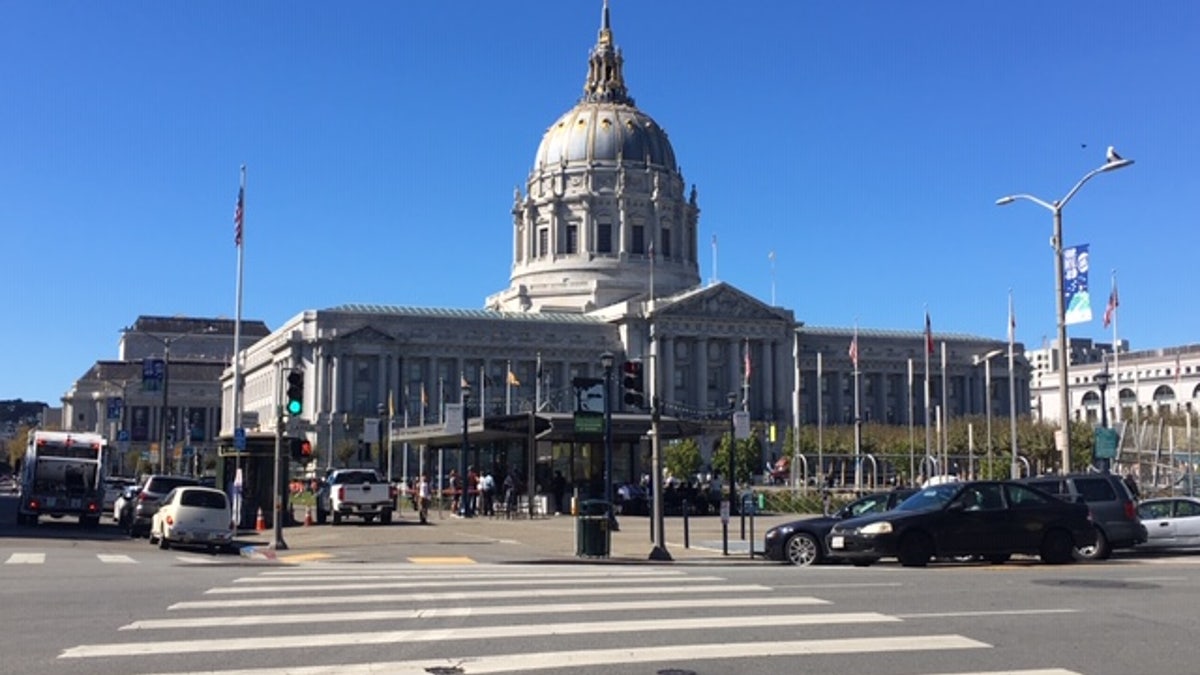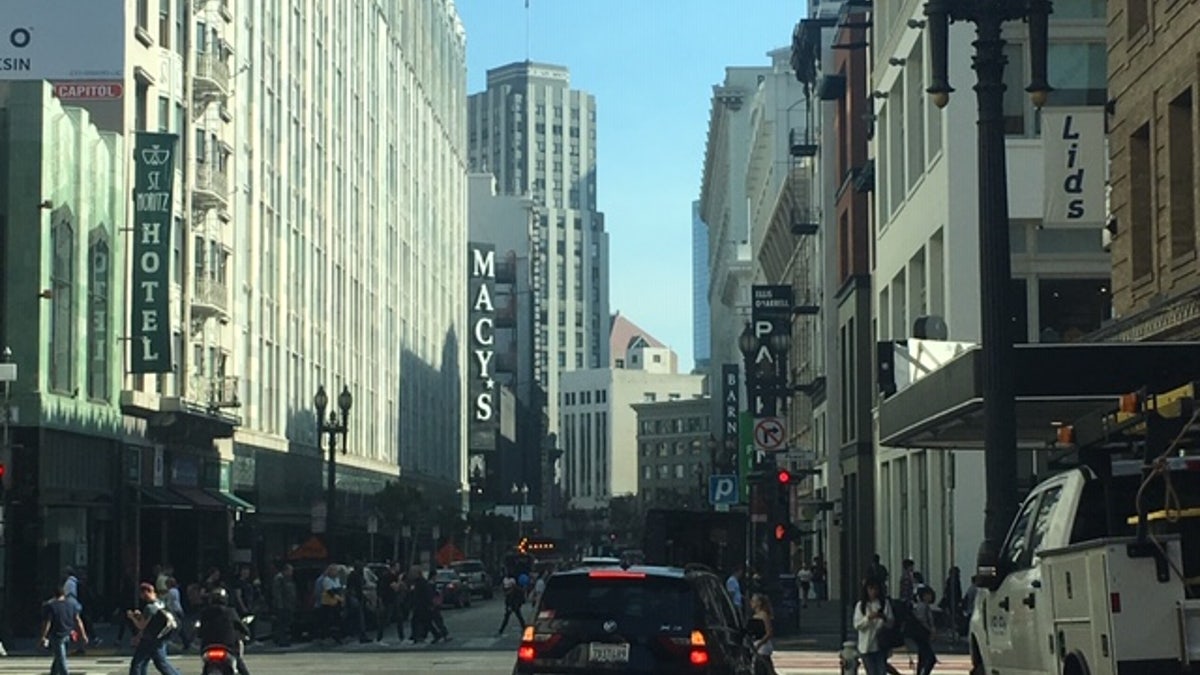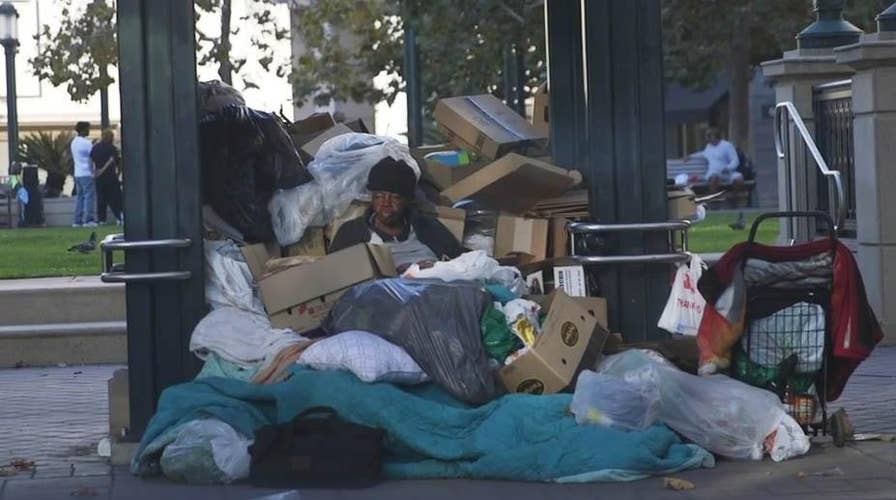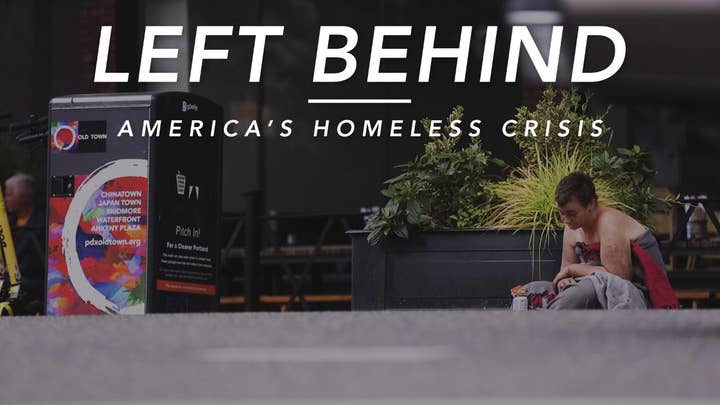California's Prop 47 leads to rise in shoplifting, theft
In 2014, Prop 47 was passed to reduce certain non-violent felonies to misdemeanors in order to free up resources for cops and prosecutors to go after serious, violent offenders. Data shows that after Prop 47 passed, shoplifting and thefts increased. Fox News spoke with San Francisco and Oakland shop owners about the recent rise in crime.
SAN FRANCISCO – In a lighted garage on one of San Francisco's busiest streets, a young man in baggy trousers and messy brown hair pulled down his pants. He had been hiding two pairs of stolen jeans with the tags still on them. He handed them to another man waiting nearby, took some money, pulled up his pants and headed back into another store on Market Street — home to the city's high-end designers and big-chain retail shops.
The incident wasn't a one-off. These brazen acts of petty theft and shoplifting are a dangerous and all-too-common consequence of Proposition 47, a referendum passed five years ago that critics say effectively gives shoplifters and addicts the green light to commit crimes as long as the merchandise they steal or the drugs they take are less than $950 in value. The decision to downgrade theft of property valued below the arbitrary figure from felony to misdemeanor, together with selective enforcement that focuses on more “serious” crimes, has resulted in thieves knowing they can brazenly shoplift and merchants knowing the police will not respond to their complaints, say critics.
SAN FRANCISCO HOMELESS STATS SOAR: CITY BLAMES BIG BUSINESS, RESIDENTS BLAME OFFICIALS
Over in the City by the Bay's famous Tenderloin district, Cassie, a 21-year-old mother of two and a former heroin junkie, told Fox News that when times were tough, she too has stolen from stores.
"If my babies need diapers or formula, who is going to get that for me? No one. I have to do it," she said. "They ain't out here arresting people for (shoplifting) and everyone knows it."
Proposition 47 is seen by critics as one of California's biggest blunders. Supported by the state Democratic Party and championed by the American Civil Liberties Union, the referendum was passed by a wide margin in 2014. The idea behind it was to reduce certain non-violent felonies to misdemeanors in order to free up resources for cops and prosecutors to focus on violent offenders.
Since Proposition 47 was passed, there has been an increase in theft across the state. Cities like San Francisco have seen organized crime rings turn shoplifting into a well-organized racket involving desperate thieves and unscrupulous black-market resellers.
Among the nation's 20 largest cities, San Francisco now has the highest rate of property crime, which includes theft, shoplifting and vandalism.
Del Seymour, founder of the non-profit Code Tenderloin, told Fox News that fencers – often from Mexico and Guatemala – set up shop in the middle of the day and night around the city's United Nations Plaza area. He said he's also noticed that the stealers and dealers have gotten bolder by the day. The retail heists taking place, he said, aren't some small-time operation but instead a sophisticated network of international dealers who cross the border to buy stolen goods. What's worse is that a majority of the handoffs happen in view of San Francisco's City Hall.
"Of course it sends a message. They're doing it right here in the open."
"Of course it sends a message," Seymour said. "They're doing it right here in the open."
Other hot spots include the Tenderloin as well as 7th and Market streets.
ATTORNEY BLASTS CALIFORNIA GOV. NEWSOM FOR USING HOMELESS CRISIS TO OVERTURN WILL OF VOTERS
Seymour believes San Francisco is stuck in a cycle and, until it's able to pull itself out, the problem will continue. Drug addicts, who are often homeless, need money for a fix so they walk into a store, steal merchandise, sell it for half the value and use the money they made to buy more drugs. Seymour added that the mayor and elected city officials have been spending too much time and money trying to coddle addicts and have done nothing to eliminate San Francisco's drug problem.
"My thing is – and I tell them this all the time – if we end the fencing, prosecute the fencing or do something with the fencing, people won't have money to buy the drugs," he said. "Most of the drugs bought are from shoplifting and breaking into cars. If they don't have a market for those goods, they won't break into cars or (shoplift) anymore."

Black market dealers set up shop in the middle of the day and night around the city's United Nations Plaza area. He said he's also noticed that the stealers and dealers have gotten bolder by the day. What's worse is that a majority of the handoffs happen in view of San Francisco's City Hall. (Barnini Chakraborty/Fox News)
The problem isn't just San Francisco-based. Across the state, retailers say they have been hit hard by shoplifters since Prop 47 went into effect.
Across the bay, in Oakland, business owners say shoplifting is a problem. Spoiled Boutique owner Mika McCants told Fox News she worries about theft, especially at night.
"I've had situations where I've had to call the authorities."
In San Diego County, 7-Eleven franchise owner Jassi Dhillon told NBC 7 that he has to deal with shoplifters at all six of his store locations.
"It's happening every day, hour by hour," he said.
Dhillon said shoplifting isn't a priority to law enforcement and said when cops do show up, the shoplifter has left the store or isn't concerned about the citation they are issued.
"It's becoming a lifestyle for us now because we can't do anything much except take the loss," he said.
Rachel Michelin, president of the California Retailers Association, said shoplifting is not only hurting retailers but is also "becoming a public safety issue for consumers."
She said black-market dealers frequently cross state lines because they know California will go easy on them if caught.
"They know what they're doing. They will bring in calculators and get all the way up to the $950 limit," Michelin told Fox News, adding that "one person will go into a store, fill up their backpack, come out, dump it out and go right back in and do it all over again."
Michelin said she's seen footage from member retailers that she described as "completely insane."
"They will go into a grocery store, steal alcohol and walk out the front door with it. They know no one is going to prosecute them."
"They will go into a grocery store, steal alcohol and walk out the front door with it," she said. "They know no one is going to prosecute them. The district attorneys aren't."
She added that there are even more sinister acts afoot. Many out-of-state crime rings use children to do their dirty work because they know they're low on the totem pole of prosecutions.
"There are folks that are using and exploiting children," she said. "But I also think that teenagers know that there are no consequences anymore. It's part of a game. If you get caught, all you have to do is get out of the store."
She, like several others Fox News spoke to, said the situation has strained the relationship between police officers and prosecutors.
"Law enforcement [officials] are trying to protect the streets and then they might do a sting and arrest a bunch of people but then the district attorney will drop it or downgrade the charges," she said.
It's a frustrating dynamic for sure, but until the state finds a fix, retailers have been reaching into their own pockets to hire private security guards but even then there are no guarantees that the stealing will stop. In fact, all that private guards can do is observe and report thefts.
"They aren't going to chase someone down the road," Michelin said.
She also took lawmakers to task over a seemingly well-intentioned plan that actually backfired and made the situation worse.

Since Proposition 47 was passed, there has been an increase in theft across the state and has turned some cities like San Francisco into a sitting duck for organized crime rings. (Barnini Chakraborty/ Fox News)
California is one of a handful of states that doesn't hand out plastic shopping bags. To get one, the purchaser has to pay an additional dime. Residents looking to save ten cents and spare the environment typically put merchandise in a purse, backpack or have it in their hand when they walk out, an unintended consequence of which is shoplifters can easily "fit in and walk out" with the paying crowd.
"It's nuts," Michelin said. "Stores are going to be forced to lock up all their merchandise."
Frustrated business owners say they feel their needs are being ignored by elected officials.
CLICK HERE FOR THE FOX NEWS APP
Fox News asked Democratic Mayor London Breed's office six separate times for an interview or to comment on this story. Her office did not respond to a single request about the growing crisis. Fox News also reached out to the district attorney's office multiple times but did not get a response.
The San Francisco Police Department pointed Fox News to "Operation Wrecking Ball," an eight month-long investigation that began in April 2018 and culminated in a dozen arrests and the recovery of stolen retail items valued at $750,000.
"Big and small businesses are hit hard financially by these thefts, which often endanger employees and discourage law-abiding customers. SFPD is collaborating closely with local businesses and our partner agencies to deter and investigate these crimes to make our city even safer and enable businesses to prosper," San Francisco Police Chief William Scott said in the press release forwarded to Fox News.






















